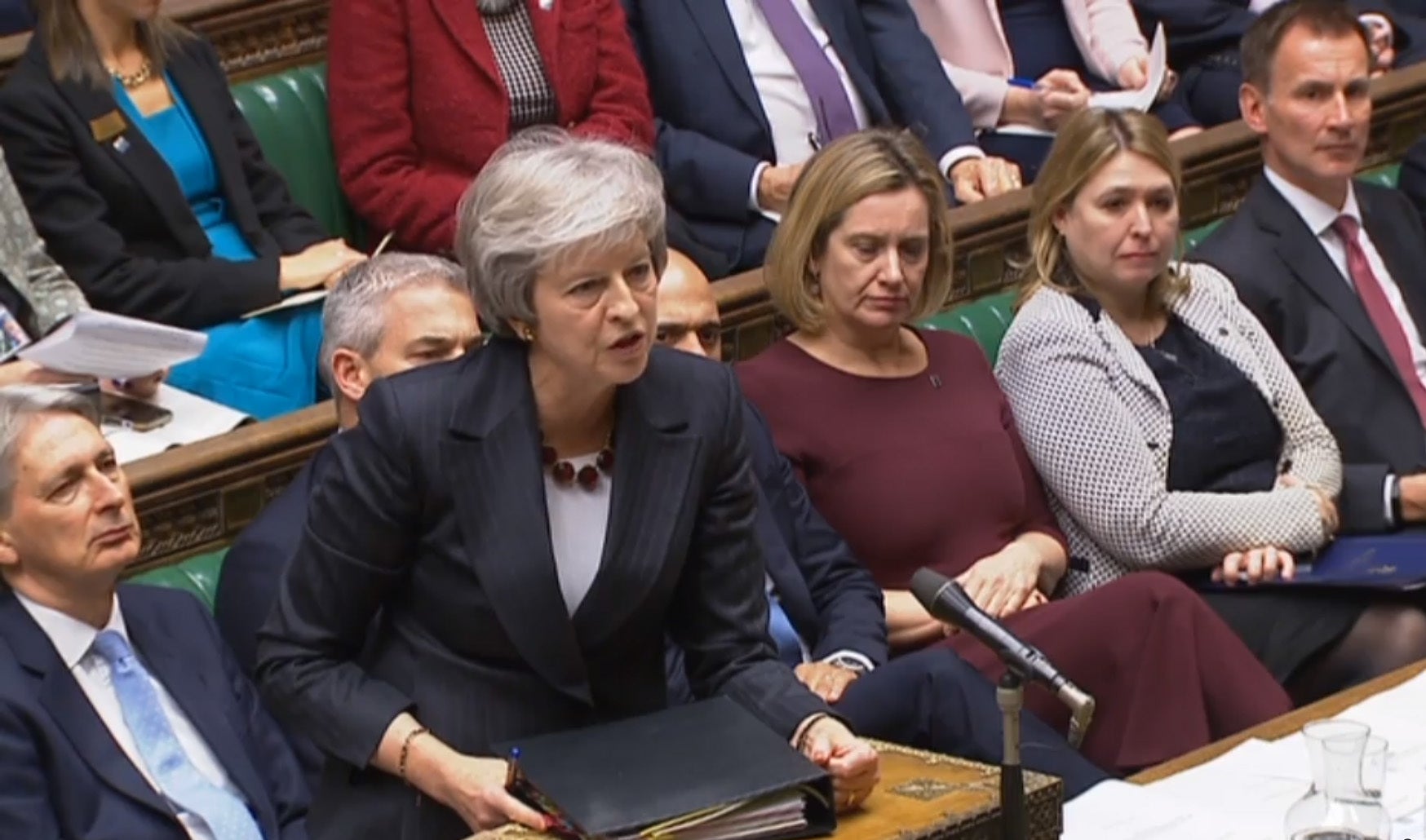The government is to give the House of Commons a ‘meaningful vote’ on approving the Brexit deal Theresa May agreed with the EU.
But with the future of the country at stake, the devilishly complex parliamentary process around the vote will be critical in whether it passes successfully for the prime minister.
The vote likely to happen early next month, here is everything there is to know about it.

What is the 'meaningful vote'?
The House of Commons has already passed the EU Withdrawal Bill which sets out the parliamentary process for the UK’s departure from the EU.
It says the government cannot ratify the Brexit deal agreed with Brussels, until it has been approved by MPs who would do so by voting for a motion “moved by a minister of the crown”.
It is the vote on this motion, which must pass for Ms May’s deal to be officially signed off by parliament, that is referred to as the ‘meaningful vote’.
When will it happen?
The government has not yet officially announced when it will take place, but all indications are that it will be on Tuesday December 11.
There was a time when it was suggested the government might try and hold the vote in parliament in the immediate aftermath of the deal being agreed with the EU, but given the scale of opposition in the commons the PM will allow more time to secure the support of more MPs.
Holding the vote on December 11 will mean that if the deal is rejected by MPs, Ms May will be able to go the European Council summit that begins two days later and ask for alterations.
That assumes she has not resigned, with some of her MPs thinking she should if the vote goes against her, and that she has survived a potential no-confidence vote that might be sparked following the rejection of her proposed deal.
Can MPs amend the motion to make ratification conditional on a new referendum?
The motion that will be voted on will be classed as “substantive”, meaning that it can in theory be amended.
Despite a row over when amendments might be made, the government has now conceded that alterations to the motion can be suggested before it is voted on.
This is significant because it means that MPs may tag conditions on to the motion, that if it is passed it requires a referendum to be held, for example, or if it is not passed, that the UK enters a Norway-style relationship with the EU as a backup.
There is a catch however, while the substantive motion itself is legally binding on the government, the amendments are not, so theoretically the government could ignore them once the main motion is passed. Politically the consequences of doing this could be catastrophic however.
Exactly, which amendments are chosen to be voted on by MPs and the order in which they are voted on could come down to a decision of the Commons Speaker John Bercow.
What happens if MPs reject the deal in the meaningful vote?
This is where the country goes into totally uncharted territory, with lots of unpredictable variables and opinion on the most likely outcome differing.
There is a suggestion that Ms May could push for MPs to vote on the motion a second time, having either secured minor changes or simply with more leverage on MPs once the markets have plummeted in the wake of the initial rejection.
If it is rejected, Ms May could simply resign, or face a vote of no confidence from her own MPs, with a new leader then choosing a different course.
But if Ms May stays, parliament may also attempt to find a way of expressing a view of what should happen next.
The problem for those seeking to wrestle control of Brexit from the government, is that it is not clear that there is a legal mechanism by which they can insist upon an alternative other than no deal.
Alternatives can be put forward, but the means for achieving them appear to be political pressure rather than any legal obligation that can be forced on the government.
Join our commenting forum
Join thought-provoking conversations, follow other Independent readers and see their replies
Comments
Bookmark popover
Removed from bookmarks